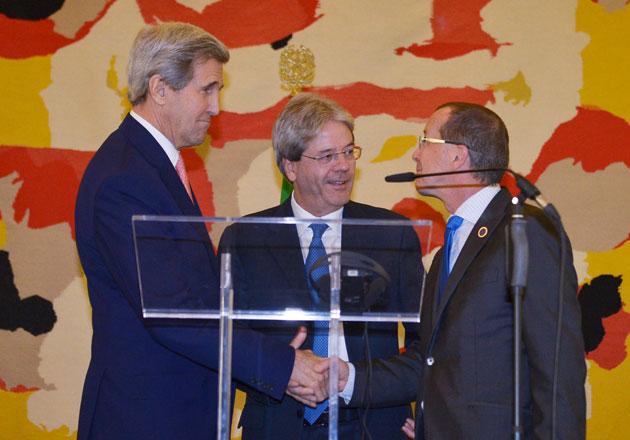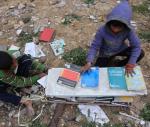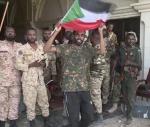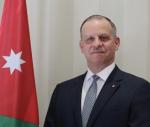You are here
Bumpy road ahead for UN-proposed Libya peace deal
By Reuters - Oct 12,2015 - Last updated at Oct 14,2015
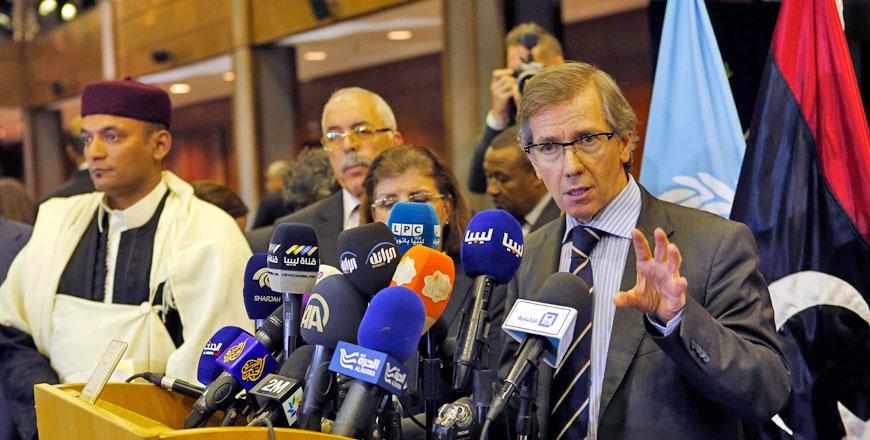
United Nations envoy for Libya Bernardino Leon gestures as he makes an announcement to the media in Skhirat, Morocco, Thursday (AP photo)
ALGIERS/TRIPOLI — After months of stalled negotiations, the United Nations has handed Libya's warring factions a unity government proposal in what it calls a major step towards ending the crisis, but the applause of Western officials cannot disguise serious obstacles.
The proposal is just that, one hinging on the approval of both sides, and hardliners may treat a weak accord as a chance to drag Libya and its oil wealth deeper into war and division.
Already splits are cropping up. Voices in both camps have criticised a proposal some say the UN wants to impose. Others have flatly rejected the deal despite warnings that naysayers will be internationally isolated and maybe even sanctioned.
Those responses may be posturing. But a failure to secure a national government could be disastrous for a North African OPEC state already deeply fractured from the internecine fighting that emerged from the 2011 fall of Muammar Qadhafi.
Libya's once robust oil production has been crippled by fighting, its foreign reserves are evaporating and Western nations are wary of the growing presence of Daesh militants and people traffickers using the chaos to expand.
For a year, the capital Tripoli has been under the control of a loose alliance of armed factions known as Libya Dawn. They set up their own self-declared government and reinstated the former parliament, the General National Congress, or the GNC.
Libya's internationally recognised government and elected parliament have operated out of the east of sprawling Libya, backed by a coalition including a divisive ex-Qadhafi general, Khalifa Haftar, former rebels and federalist forces.
UN envoy Bernardino Leon has proposed six members for a presidential council to head up the unity government, including delegates from both factions, but acknowledged those names were a UN suggestion based on the talks.
"I think what Leon did was a complete farce. We were surprised by the proposal," GNC member Mahmoud Al Gharyani said. "There must be a compromise because what has happened is not right and will never be acceptable."
Members of the elected House of Representatives also appear split and they were expected to take a vote shortly.
More important will be reactions of the armed actors on the ground, where a myriad of brigades of former rebels who once fought together against Qadhafi now dominate different cities and regions in lieu of a real army.
Negotiations were complex because neither side is fully united, and among their armed backers are commanders opposed to a peace deal with hated rivals, or more loyal to regional and tribal interests than any national government.
Misrata council, whose military faction has backed Libya Dawn in Tripoli, endorsed the UN proposal. But the rival military council in the western city of Zintan rebuffed it and called for Libyan only talks.
"The proposal of the UN unity government is a disappointment. The appointment of two godfathers of war is unbelievable," the Zintan council said, referring to two of the GNC allies mooted for the unity agreement.
Complicated timing
The proposal's timing is complicated by the October 20 end of mandate of the elected parliament. The house has voted to extend its own term in office so it can hand over to the next elected body. But its opponents say it has lost legitimacy.
The UN power-sharing deal calls for an executive council, with the current House of Representatives as the main legislature, while a state council would be a consultative second chamber mostly consisting of GNC members.
Mattia Toaldo, a fellow at the European Council on Foreign Relations, said Leon may have taken a calculated gamble, putting forward names as a way to pressure the two sides into a pact. But risks of failure are high.
Before the talks began, armed factions staged tit-for-tat air strikes on rival cities. And two factions were fighting for control of the important oil ports of Es Sider and Ras Lanuf.
"The two potential outcomes are either a new offensive on Tripoli to 'liberate' it from the GNC or the continued de facto partition of the country, with Haftar playing an ever growing role," Toaldo said.
Sanctions or agreement?
Haftar, a former Qadhafi ally who returned from exile in the United States, has already led his Libyan National Army forces in an offensive against Islamist fighters and former rebels in the eastern city of Benghazi.
The Tripoli camp rejects any Haftar role in a new government as a red line. Given the general's support in the east, many hundreds of kilometres from Tripoli, he appears unlikely to step aside, analysts say.
In a further sign of Libya's fragmentation, federalist forces commander Ibrahim Al Jathran, whose men hold two major oil ports and support the recognised government alongside Haftar, this month broke ranks with the former general.
Local political positions will also depend on the reactions of regional powers. Egypt has backed the internationally recognised government, for example, and its stance if the UN deal fails may be crucial. In February, Cairo carried out air strikes on Islamist militant camps inside Libya near its border.
Barring a unity government, foreign mediators will have few foreseeable options. Sanctions are possible. The European Union has been crafting potential moves against three Tripoli leaders and commanders, as well as Haftar and his air force chief.
"Eventually, Europe and the US will come around the pragmatic idea that the only way to achieve a degree of stability in Libya is to support one of the factions in conflict," Riccardo Fabiani at Euroasia Group said.
"Which one is picked will depend a lot on conditions on the ground and how the regional actors will position themselves."
Related Articles
TRIPOLI — Libya's self-proclaimed government in Tripoli wants a relaunch of UN-sponsored talks aimed at ending the country's civil war becau
ALGIERS/TRIPOLI — Fresh from a Rome summit on Libya's crisis, American, European and UN officials are confidently backing a proposed p
An attack by Islamist militants on a Libyan oil-field where they beheaded security guards and kidnapped foreign workers underlines the difficulties facing UN-sponsored peace talks due to resume this week.


